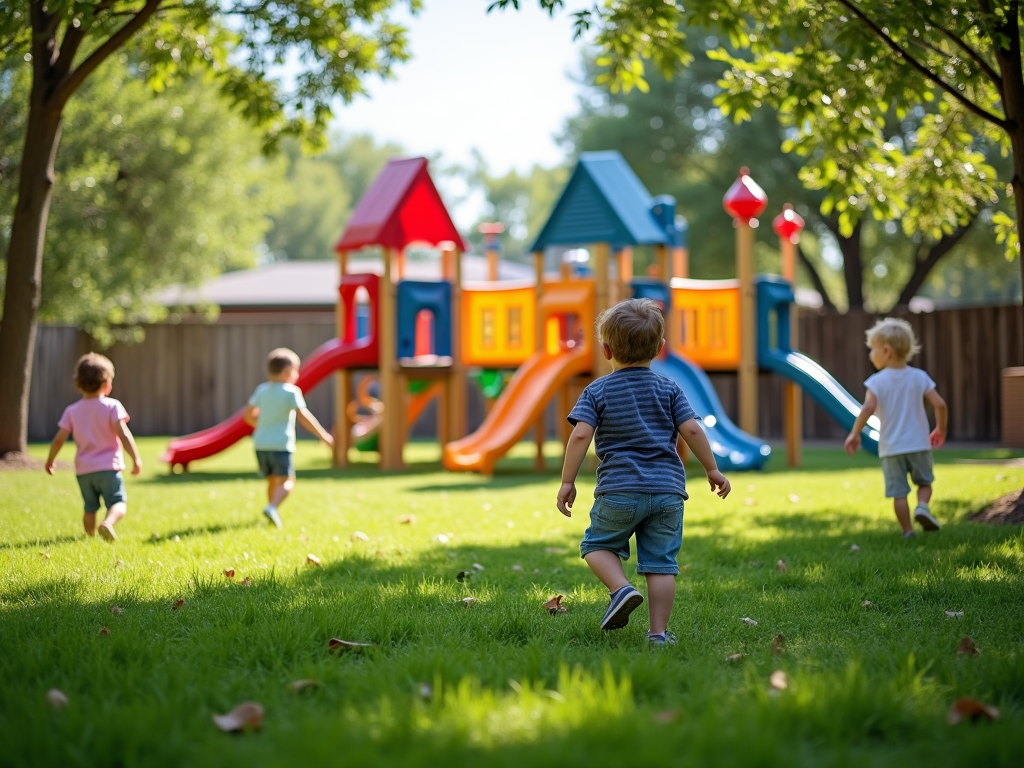Dubai, a booming metropolis in the United Arab Emirates, is witnessing rapid growth in childcare and early education services. With a diverse expatriate population and an increasing birth rate, there is a significant demand for quality childcare facilities and early education programs. This article aims to highlight the various opportunities within this dynamic sector and provide insights into how to navigate this lucrative market.
The Growing Demand for Childcare Services

The demand for childcare services in Dubai has reached unprecedented levels due to several socio-economic factors. First and foremost, the rise in dual-income families has created a substantial need for reliable childcare solutions. Additionally, the UAE government is promoting family-friendly policies that encourage workforce participation among women, thereby amplifying the need for early education services. Furthermore, as Dubai positions itself as a global hub for business and tourism, the influx of expatriates from different cultures has spurred a heightened interest in diverse educational approaches tailored to varying needs. This ever-growing demand presents numerous opportunities for entrepreneurs and educators looking to enter the market.
Types of Childcare and Early Education Services
Dubai’s childcare and early education services encompass a wide variety of options aimed at meeting different needs of families. Here are some of the prevalent types:
- Nurseries: These cater to infants and toddlers and provide a structured environment for early socialization and developmental activities.
- Preschools: Often for children aged three to five, preschools focus on preparing kids for formal education with an emphasis on foundational skills.
- Playgroups: Less formal than nurseries, playgroups offer opportunities for social interaction and play-based learning.
- Home-Based Childcare: This option allows parents to engage caregivers in a more personalized setting within their own homes or remotely.
- Educational Workshops: Programs focusing on language, art, and music that enhance children’s cognitive and social skills.
To operate a childcare facility in Dubai, adhering to local regulations and standards is essential. The Knowledge and Human Development Authority (KHDA) oversees educational institutions, ensuring that they meet specified quality benchmarks. Providers must obtain licenses and certifications, which entails undergoing rigorous inspections and meeting specific criteria, including staff qualifications, health and safety measures, and educational curricula. Compliance with regulations is not only mandatory but also crucial for establishing credibility among parents. Therefore, potential entrepreneurs must familiarize themselves with both national and local laws governing early childhood education and childcare services.
Market Trends and Innovations
The childcare sector in Dubai is evolving, driven by technological innovations and changing consumer preferences. Here are some trends shaping the industry:
- Digital Platforms: Many providers are incorporating technology, such as apps for parent-teacher communication and digital learning tools.
- Sustainability Practices: Eco-friendly and sustainable practices are becoming increasingly significant, attracting environmentally-conscious families.
- Customized Learning Plans: More facilities are offering personalized curriculums to cater to children’s individual learning styles and needs.
- Wellness Programs: Integrating physical and emotional wellness through mindfulness and movement activities are gaining popularity.
The Future of Childcare and Early Education in Dubai
As Dubai continues to grow and evolve, so too will the landscape of childcare and early education services. Experts predict that the demand will only increase as more families seek quality programs that cater to their unique needs. Opportunities for investment remain ripe as the government is actively promoting early education initiatives. Furthermore, partnerships between private providers and local authorities could facilitate the establishment of more inclusive and diverse educational environments. For educators, this is an opportune moment to innovate and contribute to a sector that is not only economically viable but also socially impactful.
Conclusion
Dubai’s childcare and early education services present a multitude of opportunities for aspiring entrepreneurs and educators looking to make a mark in this swiftly expanding industry. With a robust demand fueled by socio-economic factors, various types of services to choose from, and the continuous evolution of educational practices, now is the time to enter the market. Businesses that prioritize quality, adapt to trends, and comply with regulations are poised for success in this vibrant sector.
FAQ
1. What types of childcare facilities are most in demand in Dubai?
The types of childcare facilities in high demand include nurseries, preschools, playgroups, home-based childcare, and educational workshops, catering to the diverse needs of families.
2. What regulations must childcare providers comply with in Dubai?
Childcare providers must comply with local regulations set by the Knowledge and Human Development Authority (KHDA), which include licensing, health and safety standards, and staff qualifications.
3. How can technology enhance childcare services?
Technology can enhance childcare services by facilitating parent-teacher communication through apps, providing digital learning tools, and streamlining administrative processes.
4. What are the emerging trends in Dubai’s childcare sector?
Emerging trends include the integration of sustainability practices, personalized learning plans, wellness programs, and the use of digital platforms in early education.
5. Is there government support for childcare services in Dubai?
Yes, the UAE government actively promotes family-friendly policies and early education initiatives, providing opportunities for investment and partnership in the childcare sector.



